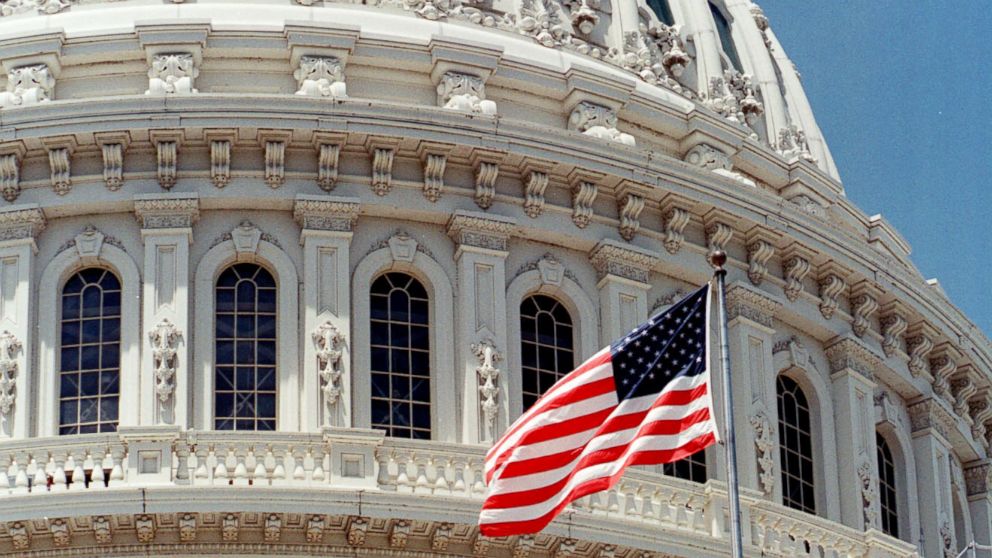The men who declared American independence needed a push from women
Several women made a behind-the-scenes push for liberty from the British.

— -- Most of us know the words toward the beginning of the Declaration of Independence, the part about all men being created equal with “certain unalienable Rights,” among them “Life, Liberty and the pursuit of Happiness.” But it’s the words near the end of the document, where the signers declared the colonies “absolved from all allegiance to the British Crown” that mattered most in creating this nation.
Those words, of course, amounted to treason, punishable by hanging. So getting to the point where the Continental Congress was ready to make that bold move wasn’t easy. Even after the 1775 battles of Lexington, Concord and Bunker Hill, it took the politicians who met in Philadelphia more than a year to be convinced that they had no other choice but to break away from the “mother country.”
The congress itself was a new idea, meeting for the first time in 1774 to try to send a unified message to the British parliament objecting to punitive laws and taxes. Beyond their grievances, however, nothing really unified the colonies, or disparate groups within each colony. It seemed it would take something dramatic to move these men past their endless debate.
But even the outbreak of war didn’t do it. When the congress met for the second time, illegally according to Parliament, in May 1775, the members voted to create a Continental Army with George Washington as its commander (he had gone to Philadelphia dressed in his militia uniform, cutting such an impressive figure that his colleagues did exactly what he expected them to do--they put him in charge). Still members clung to the idea that peace-making was possible.
In July 1775 they sent off the “Olive Branch Petition” to King George insisting that because “our breasts retain too tender a regard for the kingdom from which we derive our origin” he should use his royal authority to effect a “happy and permanent reconciliation.” It was signed by most of the same men whose names we honor as the architects of our liberty -— including Thomas Jefferson, Benjamin Franklin and John Adams.
Abigail Adams was furious.
“Your petitioning the King again pleases (forgive me if I say the timid and the weak) those persons who were deemed the Lukewarms,” she huffed to her husband in a July 25, 1775 letter when she heard the news. She had been ready to make the break from Britain for years. Many months earlier than Patrick Henry’s famous speech she wrote to a sympathetic Englishwoman: “The only alternative which every American thinks of is liberty or death.”
Liberty was foremost in Mrs. Adams’s thinking even before she witnessed the battles so near her Massachusetts home. She was certain that any American would rather “die the last of British freemen that bear to live as the first of British slaves.” Then, with the country at war, the congress was still making overtures to the king! What a relief it was to learn that the monarch would not accept the petition.
As danger surrounded her, Abigail became more insistent. In March 1776 she pestered, “I long to hear that you have declared an independency.”
In that same letter, she famously advised congress that in whatever code of laws the members drew up for the new nation they should “remember the ladies.”
Many other women also lobbied for liberty. Chief among them Mercy Otis Warren, whose plays and pamphlets influenced the populace and the politicians right along with the writings of Thomas Paine. Finally the cries for freedom by the besieged people combined with the intransigence of the British wore down the men meeting in Philadelphia.
On July 2, 1776 they voted for independence.
They made their declaration public on July 4. And then, with the British army at their heels, the men in congress had to high tail it out of Philadelphia. They reconvened in Baltimore and in January, 1777 bravely decided to print and promulgate the Declaration of Independence, ready to circulate it with all their names on public display.
They chose for the task the most renowned printer in the city. When she carefully typeset the momentous manuscript followed by the names of the marked men, under all of theirs she added her own, “Mary Katherine Goddard, printer.” So she too was a signer of sorts, she too risked her life for the independence we celebrate today.
Cokie Roberts is a political commentator for ABC News. Roberts is the author of two books on the histories of women in America's founding era, "Founding Mothers" and "Ladies of Liberty."




